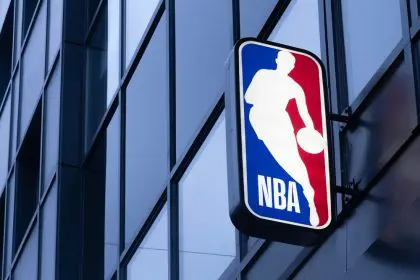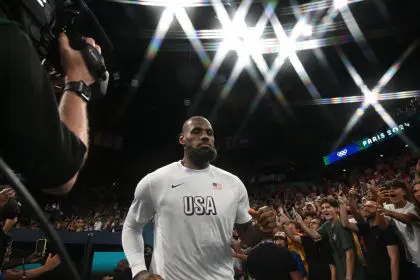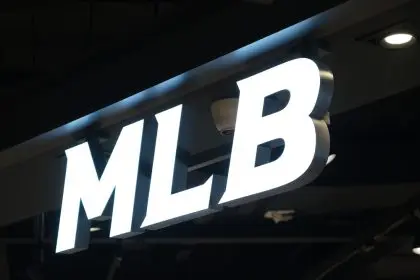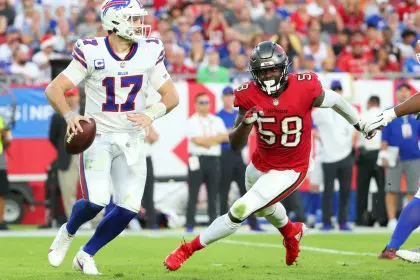The Kansas City Chiefs are facing some serious legal heat right now, and it’s the kind of controversy that makes front office executives break out in cold sweats. Ramzee Robinson, who spent nearly a decade working for the organization, just filed a lawsuit that’s packed with allegations serious enough to make anyone’s jaw drop.
Picture this: You’re called into a meeting at work, accused of something you didn’t do, and then fired without even getting to see the evidence against you. That’s essentially what Robinson claims happened to him in February, and now he’s taking the Chiefs to federal court over it.
This isn’t just some minor workplace dispute either. We’re talking about allegations of racial discrimination, pay disparities, and wrongful termination that could seriously damage the Chiefs’ reputation if proven true. Sometimes workplace drama stays behind closed doors, but when it involves an NFL franchise, everyone’s watching.
The allegations that could change everything
Robinson’s lawsuit reads like a workplace nightmare scenario. According to the filing, he was hauled into a meeting and accused of attacking a female coworker – a serious allegation that would obviously be grounds for immediate termination. But here’s where things get interesting: Robinson claims the Chiefs refused to show him the security video of this alleged incident.
Think about that for a second. If someone accused you of workplace violence, wouldn’t you want to see the evidence? Most people would demand to review any video footage before accepting such serious accusations. The fact that Robinson says he was denied access to this supposed evidence raises some pretty big red flags about the whole situation.
The lawsuit suggests that Robinson was essentially blindsided by these accusations and then fired before he could properly defend himself. That’s the kind of process that would make any employment lawyer’s eyes light up with dollar signs. Due process isn’t just a legal concept – it’s basic fairness in the workplace.
Robinson had been working as the Chiefs’ director of player engagement for nine years, which means he wasn’t some new employee who could be easily dismissed. His role involved locker room management, mentorship, and other crucial responsibilities that required building trust with players and staff. You don’t typically last nearly a decade in that kind of position without being good at your job.
Pay disparities reveal bigger problems
Beyond the termination controversy, Robinson’s lawsuit digs into some uncomfortable territory about salary disparities that could affect the entire organization. According to his research, he was making $125,000 annually while comparable positions at other NFL teams average $171,932 – that’s a difference of nearly $47,000 per year.
That’s not just a small gap we’re talking about; it’s a significant chunk of change that adds up over time. When you’re making almost $50,000 less than your peers in similar positions, it starts to feel less like market variation and more like systematic undervaluation. Robinson’s lawsuit suggests this wasn’t an isolated incident but part of a broader pattern.
The lawsuit specifically alleges that the Chiefs paid African-American business employees less than their white counterparts performing similar roles. If true, that’s exactly the kind of systematic discrimination that federal employment laws are designed to prevent. It’s one thing to have individual disputes about performance or workplace incidents – it’s entirely different when there’s a pattern of pay inequality based on race.
These kinds of salary disparities don’t happen by accident. They’re usually the result of either intentional discrimination or systematic biases in how organizations evaluate and compensate their employees. Either way, it’s a serious problem that could have legal consequences far beyond Robinson’s individual case.
The Chiefs’ careful response strategy
Kansas City’s response to these allegations has been predictably cautious. Team spokesperson Brad Gee issued a statement saying they don’t tolerate discrimination of any kind and look forward to the facts coming to light. That’s exactly the kind of carefully worded response you’d expect from an organization’s legal team.
But notice what they didn’t say. They didn’t deny the specific allegations, explain why Robinson was terminated, or address the pay disparity claims. Sometimes what organizations don’t say is just as telling as what they do say. The Chiefs are clearly in damage control mode while their lawyers figure out how to handle this situation.
The phrase “we look forward to the facts coming to light” is particularly interesting because it suggests the Chiefs believe they have evidence that will support their side of the story. That security video Robinson claims he wasn’t allowed to see? It’s probably going to be central to how this case plays out in court.
NFL franchises typically have extensive security systems and detailed documentation of workplace incidents. If the Chiefs have clear video evidence of wrongdoing, they’ll likely use it to defend their termination decision. If they don’t, or if the evidence is ambiguous, Robinson’s case becomes much stronger.
Robinson’s NFL background adds credibility
One detail that makes this lawsuit particularly interesting is Robinson’s background as a former NFL player. He was the last pick in the 2007 draft – famously known as “Mr. Irrelevant” – and played for Detroit, Philadelphia, and Cleveland over his brief career. While he never actually played for Kansas City, his NFL experience probably helped him land the player engagement role.
Having been a professional athlete gives Robinson unique credibility when it comes to understanding locker room dynamics and player mentorship. Teams typically value that kind of authentic experience when hiring for player engagement positions. It’s not like the Chiefs hired someone off the street – they brought in someone who understood the NFL culture from a player’s perspective.
The fact that Robinson lasted nine years in his role suggests he was effective at his job. Player engagement directors who don’t connect well with athletes or create locker room problems typically don’t last that long. His longevity with the organization makes the sudden termination even more surprising and potentially suspicious.
Broader implications for NFL workplace culture
This lawsuit comes at a time when the NFL is already facing scrutiny about workplace diversity and inclusion. The league has implemented various initiatives to address these issues, but cases like Robinson’s suggest there’s still work to be done at the franchise level.
If Robinson’s allegations are proven true, it could prompt other NFL employees to examine their own workplace experiences and compensation. Sometimes one lawsuit opens the floodgates for similar claims, especially when it involves systematic issues like pay disparities or discrimination patterns.
The timing is also significant because it comes during a period when professional sports organizations are increasingly being held accountable for their workplace practices. Fans, sponsors, and the media are all paying closer attention to how teams treat their employees behind the scenes.
What happens next could set precedents
Robinson filed his lawsuit in federal court, which means this case will be decided under federal employment discrimination laws. These cases can take months or years to resolve, depending on how much evidence needs to be reviewed and whether the parties can reach a settlement.
The discovery process will be particularly interesting because it could reveal internal emails, salary records, and other documents that shed light on the Chiefs’ workplace practices. If there’s evidence of systematic pay disparities or discriminatory decision-making, it could be devastating for the organization’s reputation.
This case will also be watched closely by other NFL franchises, player advocacy groups, and employment law experts. The outcome could influence how teams handle similar situations in the future and potentially lead to changes in league-wide policies about workplace discrimination and due process.
Whether Robinson’s allegations are ultimately proven true or false, this lawsuit has already accomplished one thing: it’s brought attention to important questions about workplace fairness and accountability in professional sports. Sometimes that’s the most important outcome of all.
















